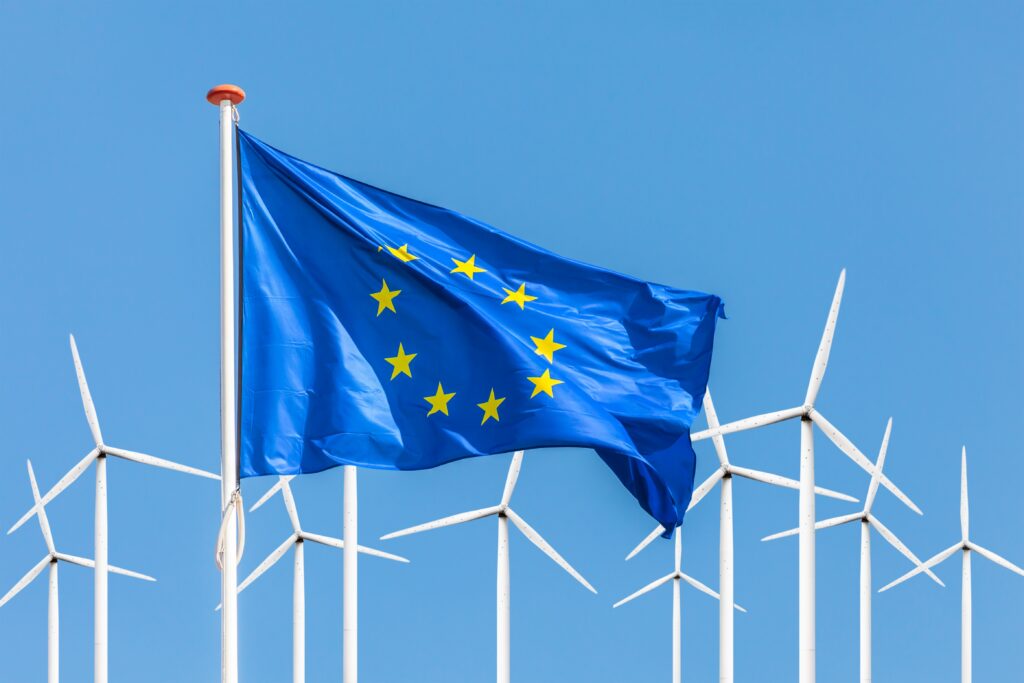The European Commission has launched the Clean Industry Pact, committing €100 billion to support businesses in developing green technologies. The ambitious initiative is designed to strengthen the European Union’s industrial base and position the region as a leading hub for clean technologies on the global stage, competing with major economies like China and the United States.
The Clean Industry Pact focuses on decarbonisation as a key driver of economic growth, industrial revival, and the transition to a low-carbon economy. This move is crucial for all 27 EU member states as they work toward achieving carbon neutrality and sustainable growth.
A Bold Commitment to Green Innovation
The European Union has made a significant pledge in the form of the Clean Industry Pact, which aims to foster a transition towards greener technologies and industries across the continent. By allocating €100 billion in funding, the European Commission hopes to accelerate the adoption of clean technologies and secure Europe’s place as a global leader in the green transition.
Neil Makaroff, director of the Strategic Perspectives think tank, emphasized the importance of boosting European-made green technologies. He noted that the new initiative would focus on making public procurement more supportive of European products. “For the first time, the EU will invest in value chains at a European level, closing gaps such as lithium refining,” Makaroff explained. This initiative aims to reduce Europe’s dependency on foreign supply chains for critical raw materials and bolster local industries that are key to the transition.
Targeting Energy Costs for Industries and Households
The immediate goal of the Clean Industry Pact is to lower energy costs for industries and households in Europe. The Commission plans to allocate €100 billion to support businesses with predictability and financial stability. Industries that consume large amounts of energy, such as steel and cement, will be among the first to benefit from the initiative. By addressing energy costs, the EU aims to make these industries more competitive while supporting the transition to cleaner, more sustainable technologies.
The European Commission also plans to strengthen investments in clean technologies, positioning them as central to Europe’s economic growth and competitiveness in the global market. Victor Van Hoorn, director of Cleantech for Europe, highlighted the pragmatic nature of the pact. “This is a practical approach to the European Green Deal,” Van Hoorn said, underscoring the role of private businesses in driving economic transformation and decarbonisation.
Ensuring Affordable Access to Critical Raw Materials
One of the central elements of the Clean Industry Pact is ensuring that Europe has access to the raw materials needed to drive the green transition. The EU will focus on securing critical materials such as lithium, rare earth metals, and cobalt, which are essential for green technologies like electric vehicles and renewable energy systems.
To achieve this, the Commission proposes a new approach to resource procurement. This includes group purchasing, which will allow companies to pool their resources and consolidate their purchasing power. By consolidating demands for raw materials, the EU hopes to create more favorable market conditions and ensure more stable access to these critical resources.
Additionally, the European Union will diversify its supply chains by establishing partnerships with trusted international allies. These partnerships will help to reduce reliance on less secure sources and offer greater stability in the supply of critical materials. The EU will also employ trade defense tools to protect European companies from unfair competition and ensure that European businesses can compete on a level playing field.
Criticism and Concerns About the Green Deal
Despite the optimism surrounding the Clean Industry Pact, there are concerns about its potential impact on the European Green Deal. Some critics fear that the pact could undermine the Green Deal’s goals by prioritising industrial development over environmental protections. The Green Deal, which aims to make Europe the first carbon-neutral continent by 2050, remains Ursula von der Leyen’s flagship environmental policy.
However, the European Commission has reaffirmed its commitment to carbon neutrality by 2050. It has set ambitious targets to reduce greenhouse gas emissions by 55% by 2030 and by 90% by 2040. The Clean Industry Pact is seen as a key part of these broader environmental goals, helping to ensure that Europe remains on track to meet its climate targets while securing jobs and economic growth.
Job Creation Through Renewable Energy Investments
One of the most exciting aspects of the Clean Industry Pact is its potential to create jobs in Europe. The European Commission estimates that investments in renewable energy technologies could generate more than 3.5 million jobs by 2030. These jobs will span a range of sectors, from manufacturing and construction to research and development. By investing in green technologies, the EU aims to create a sustainable, job-rich economy that supports its climate goals.
This focus on job creation aligns with Europe’s broader strategy to not only reduce emissions but also ensure that the transition to a low-carbon economy benefits workers and communities across the continent. Clean energy investments are seen as a pathway to a more inclusive, sustainable economy, where people can transition from high-carbon industries to new, green jobs.
A Green Future for Europe
The Clean Industry Pact is a crucial step toward achieving Europe’s climate and economic goals. By investing in clean technologies, lowering energy costs, and ensuring access to critical raw materials, the European Commission is setting the stage for a greener, more sustainable future.
While challenges remain, particularly around ensuring that the Green Deal’s environmental targets are met, the EU’s commitment to decarbonisation offers hope for a cleaner, more prosperous future. The Clean Industry Pact will be a vital tool in helping Europe meet its goals, providing businesses with the resources they need to innovate and thrive in a rapidly changing global market.
For further insights into the EU’s clean energy initiatives and their economic potential, visit Wealth Magazine.


